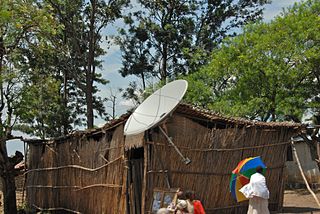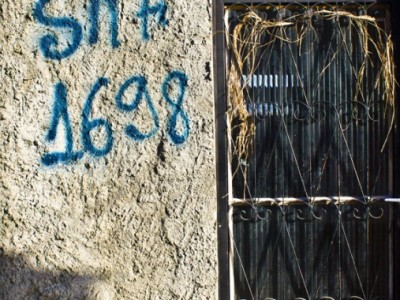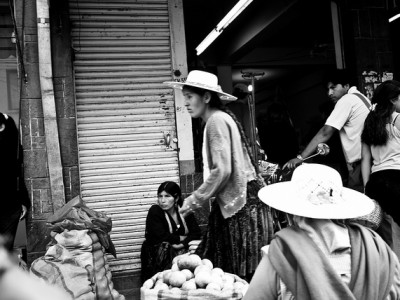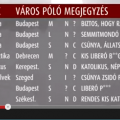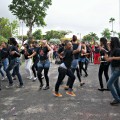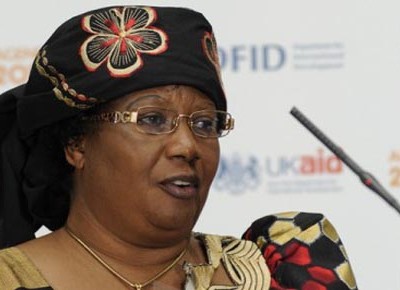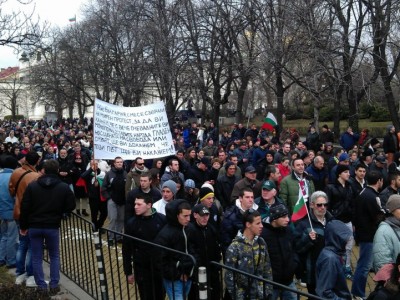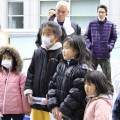Stories about Human Rights from February, 2013
Burundi: Violent Suppression of Demonstration Support for Imprisoned Journalist
The Court of Burundi revised the life sentence for journalist and Radio France International correspondent Hassan Ruvakuki on appeal, reducing his sentence to three years imprisonment. Media professionals demonstrated in sympathy weekly outside the Bujumbura Court building since the sentence was handed down until violent suppression of a march by the authorities.
Zambian Opposition Lobby for Suspension from the Commonwealth
Zambia’s opposition parties travelled to South Africa to call upon the Commonwealth to suspend the country amid claims of a deteriorating political environment.
One Billion Rising: Progress for Women Worldwide, But Still Much to Do
On February 14, 2013, a worldwide event "One Billion Rising" was held, in which women were invited to gather and to dance, to demonstrate against gender violence. On this occasion, Barbara Auger raises a question still faced by women today: what role should they take ?
Women Protesters Call for the Fall of the Saudi Interior Minister
A group of women and children who are relatives of uncharged prisoners managed to organize a small sit-in in Saudi Arabian city of Buraida, challenging the strict ban on demonstrations in the absolute monarchy. This week's sit-in had an unprecedented, explicit demand: the fall of the Interior Minister.
Turkish Women Speak Up: My Body, My Decision
Turkish women protested, and protected their rights by saying 'my body, my decision.' But it seems like they still have a long way to go and fight until it is 100% their decision what to do on their body or their life. Baran Mavzer tells us why Turkish women, though in a better position than many across the Muslim world, have a long struggle ahead of them to obtain and maintain their legal and human rights.
Jailed Iranian Blogger Up for Award
Reporters Without Borders and Google announced the name of the nominees for the 2013 Netizen Prize. Shiva Nazar Ahari, Iranian female human rights activist and blogger is among the nominees. Read more about Shiva here.
[Webcast] Internet Censorship and the Remembrance of Infowars Past
With Internet censorship on the rise around the world, organizations and researchers have developed and distributed a variety of tools to assist Internet users to both monitor and circumvent such censorship.
Brazil: Cable Car Goes Up, Houses Come Down for World Cup
The construction of a cable car for tourists in preparation for the 2014 FIFA World Cup in the Morro da Providência favela in Rio de Janeiro is kicking residents out. Demolished houses are being traded for a stipend of 400 reais (200 US dollars), and many families have been unable find a place to live.
Open Letter to China on Human Rights
Just prior to China's annual “two meetings” of the NPC and CPPCC, which are scheduled to convene on March 5, more than 100 prominent individuals — including academics, journalists, lawyers and economists signed an open letter calling on China's government to immediately ratify the International Covenant on Civil and Political Rights. The open letter, circulated on Chinese social media...
VIDEO: In Bolivia, Indigenous Women Draw Society's Short Straw
Marisol, an indigenous Bolivian woman, says that in her country "being an indigenous woman is the worst thing that can happen to you." Her testimony is part of a news report by Mario Munera which explores the lives of Bolivian women in the contexts of education, politics and sexist violence. The report "Women in Bolivia" was published in Periodismo Humano.
A Futile Gagging Order for the ‘Prisoner X’ Scandal
For a whole day, Israeli media were forbidden from reporting on the Prisoner X story, even as it was making headlines worldwide and Israelis disseminated the news in social media and blogs.
“Liberal, Jewish, Sexy”: Keeping Tabs on Hungarian Students
According to a report published by a Hungarian TV channel, members of the student union of one of the universities in Budapest allegedly kept tabs on students’ religion, ethnic background and political affiliation.
Defending Capital Punishment in Japan
Would you still be against it if someone you loved was killed by a psychotic murderer? Human rights organization Amnesty International called for the death penalty to be abolished in Japan and criticized the Japanese Ministry of Justice for hanging three inmates. Beth at JapanCrush takes a look at reactions from netizens who are in favor...
Sexual, Holy and Disruptive: One Billion Rising in the Caribbean
The "One Billion Rising" campaign, created in response to statistics which suggest that one in three women will be assaulted or raped in their lifetime, called on women across the world to dance together in protest of gender violence on February 14th. Various groups throughout the Caribbean participated...
Nationwide Strike Delivers Blow to Malawi's President
Malawi's President Joyce Banda is beating back calls for her to resign after hundreds of thousands of civil servants demanding a wage increase went on a two-week long strike, shuttering the country's international airport and paralyzing hospitals and schools
Bulgarian Government Quits, But Protests Continue
The protests in Bulgaria continue: on Sunday, in Sofia and other cities, tens of thousands of people marched against corruption, high utility bills and poverty. Ruslan Trad reports from the Bulgarian capital.
Syria: “Lens of a Young Homsi”, Photographs of a City under Siege
A group of young photographers from Homs has become an important source of information about the besieged Syrian city. In addition to letting the world know what's happening in Homs, they also receive daily requests from people who had to flee the city and want to know if their houses have been destroyed or not.
Police Torture Continues in Egypt
On Egyptian Chronicles, blogger Zeinobia talks about how the police continue to torture people. She shares the story of Ayman Mehana, who was attacked, arrested and allegedly sexually abused at the hands of police. She reminds her readers about why Egyptians took to the streets on January 25, 2011: This...
Macedonian Anti-Fascists Protest Against Harassment
On Feb. 16, World War II veterans and their supporters protested against the forced neglect of the Allied Forces' achievements (which include the founding of the Macedonian state), and the continuous harassment of the veterans' organization by the current government at all levels. Filip Stojanovski reports.
Evacuate the Children of Fukushima
Parents, residents and lawyers are taking to the streets demanding that their children by evacuated from Japan's Fukushima region, where they claim radiation levels continue to be high.
A First for Africa: Ex-Dictator to be Judged on the Continent
A new court system, the Extraordinary African Chambers has recently been set up to allow the first ever trial of one of its own dictators on the continent. The tribunal to judge Hissène Habré, former president of Chad, opened in Senegal on February 8, 2013. Human Rights Watch has been working since 1999 with victims of the ex-dictator, currently in exile in Senegal, in order to bring him to justice.

